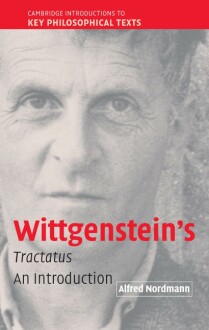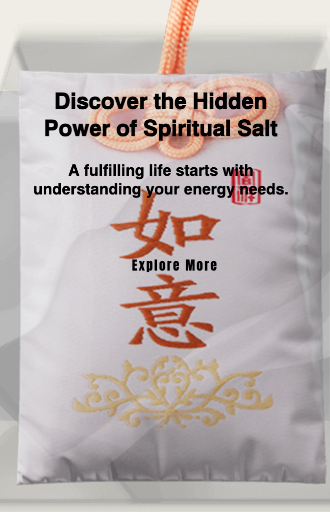Wittgenstein's Tractatus: A Deep Dive into Key Philosophical Texts
Key Takeaways
- Accessible introduction to Wittgenstein's philosophy.
- Ideal for both beginners and experienced philosophers.
- Enhances understanding of the Tractatus's key concepts.
- Part of a series that includes other significant philosophical texts.
For anyone venturing into the profound world of philosophy, "Wittgenstein's Tractatus: An Introduction" serves as a crucial guide. This book not only demystifies Ludwig Wittgenstein's complex ideas but also presents them in an accessible manner for modern readers. As part of the Cambridge Introductions to Key Philosophical Texts, it promises to enhance your understanding and appreciation of Wittgenstein's monumental work.
About Wittgenstein's Tractatus: An Introduction
"Wittgenstein's Tractatus: An Introduction" is a meticulously crafted guide that opens the door to the intricate world of Wittgenstein's philosophy. This book is designed for both novices and seasoned scholars, providing a comprehensive overview of the essential themes and arguments presented in the original Tractatus. Its engaging prose and thoughtful analysis make it an invaluable resource for anyone looking to delve deeper into philosophical inquiry.
Key Features
- Comprehensive Overview: Offers detailed explanations of key concepts in Wittgenstein's work.
- Accessible Language: Written in a clear and approachable manner, making complex ideas easier to grasp.
- Contextual Insights: Places Wittgenstein's thoughts within the broader philosophical landscape.
- Engaging Structure: Organizes information effectively for a smooth reading experience.
Design and Build Quality
This book features a well-thought-out design that facilitates easy reading and comprehension. The layout is clean, with ample whitespace that allows readers to focus on the content without feeling overwhelmed. The use of quality materials ensures that this book can withstand frequent use, making it a durable addition to any philosophical library.
Ease of Use
The user interface of this book is intuitive, with a logical flow that guides readers through Wittgenstein's complex ideas. The clear section headings and subheadings help in navigating the text, making it easy to reference specific topics. Additionally, the book comes with a well-organized index, enhancing its usability as a reference guide.
Use Cases
This book is particularly well-suited for:
- Students: Ideal for those studying philosophy in academia.
- Philosophy Enthusiasts: A great resource for individuals looking to deepen their understanding of Wittgenstein.
- Book Clubs: The engaging content makes it a perfect choice for group discussions.
- Self-Study: Excellent for independent learners wanting to explore philosophical concepts at their own pace.

By making Wittgenstein's groundbreaking ideas accessible, "Wittgenstein's Tractatus: An Introduction" stands as an essential text for anyone interested in the intersections of philosophy, language, and thought. For those who wish to explore more influential works, check out our sections on Philosophical Texts and Spiritual Growth.
Check Current PriceWhy you should consider this book
Pros
- Clearly written and accessible, making complex philosophical ideas easy to understand.
- Provides a comprehensive overview of key concepts in Wittgenstein's Tractatus.
- Well-structured layout that enhances readability and navigation.
- Ideal for both beginners and seasoned philosophers, catering to a wide audience.
- Offers contextual insights that enrich the reader's understanding of philosophical discussions.
Cons
- Some readers may find it lacks depth in certain areas of Wittgenstein's philosophy.
- Not as comprehensive as a full commentary on the Tractatus.
- May not satisfy those looking for rigorous academic analysis.
Overall, "Wittgenstein's Tractatus: An Introduction" stands out as an invaluable resource for anyone interested in philosophy. While it has minor limitations, its clear writing and comprehensive overview far outweigh these cons, making it a recommended read for both novices and experienced philosophers alike.
Final Thoughts on Your Philosophical Journey
Tips for Buyers
When considering similar philosophical texts, look for the following:
- Clarity of Writing: Ensure the author presents ideas in an understandable way.
- Comprehensive Overview: Check if the book covers key concepts thoroughly.
- Contextual Insights: Look for works that place ideas within a broader philosophical context.
- Reader Reviews: Pay attention to feedback from other readers to gauge usability and engagement.
A common mistake is to overlook the importance of a well-structured layout that enhances readability. A book that is difficult to navigate can hinder your learning experience.
In summary, "Wittgenstein's Tractatus: An Introduction" provides numerous benefits, including its clarity, comprehensive overview, and accessibility. While it may not delve into extreme depths for every philosophical concept, its strengths far outweigh any drawbacks. This book is perfect for those new to Wittgenstein's work as well as seasoned philosophers looking for a refreshing take.
If you are eager to deepen your understanding of philosophy, especially with regard to language and meaning, this book is highly recommended. It serves as a bridge to Wittgenstein's ideas and can ignite further exploration into the vast world of philosophical thought.
 Check Current Price
Check Current Price
Curious Minds: Your Questions Answered
-
Q: Is this book suitable for beginners in philosophy?
A: Yes, the book is written in a clear and accessible style, making it ideal for those new to philosophy.
-
Q: Does it provide detailed analyses of Wittgenstein's ideas?
A: While it offers a comprehensive overview, some readers feel it lacks depth in certain areas.
-
Q: How does this book compare to other philosophical texts?
A: It is part of a series that focuses on making complex philosophical works accessible, similar to other texts in the series.
-
Q: Is there a structured layout to the book?
A: Yes, the book features a well-organized structure with clear headings and subheadings for easy navigation.
-
Q: Can it be used as a reference guide?
A: Absolutely! The index and logical flow make it a practical resource for referencing key concepts.













